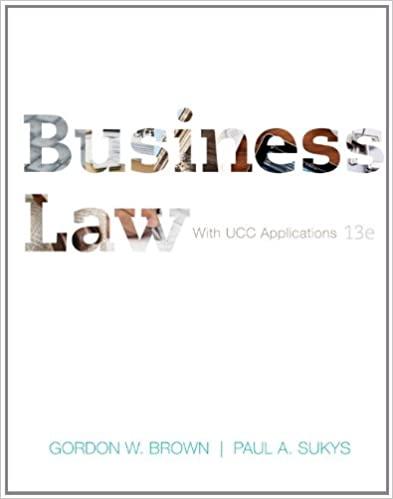The court held Rostow to the contract in Example 12-8 even though Future graphics was one week
Question:
The court held Rostow to the contract in Example 12-8 even though Future graphics was one week late in fulfilling its part of the agreement. Because time really was not essential to the agreement, and because Rostow presumably knew that, was it ethical for Rostow to raise the issue of Future graphics’ lateness in the first place? If time had been important to the completion of the Web site, did Rostow have a responsibility to raise the issue of time before the contract was finalized? If Future graphics knew it was running behind schedule, did it have a duty to notify Rostow and offer some sort of compensation for the breach? Explain your answers.
Data from example 12-8
Rostow Aviation, Ltd., entered a contract with Future graphics, Inc., for the design and implementation of a new Web site for Rostow. The Web site was supposed to be up and operational within 60 days of the making of the contract. Future graphics was one week late in the completion of the Web site.
Rostow attempted to rescind the agreement, claiming that time was of special importance. The court ruled that it had not been clearly established that time was essential for the completion of the Web site. Because time was not essential to the satisfactory performance of the agreement, Rostow was held to the contract.
Step by Step Answer:

Business Law With UCC Applications
ISBN: 9780073524955
13th Edition
Authors: Gordon Brown, Paul Sukys





